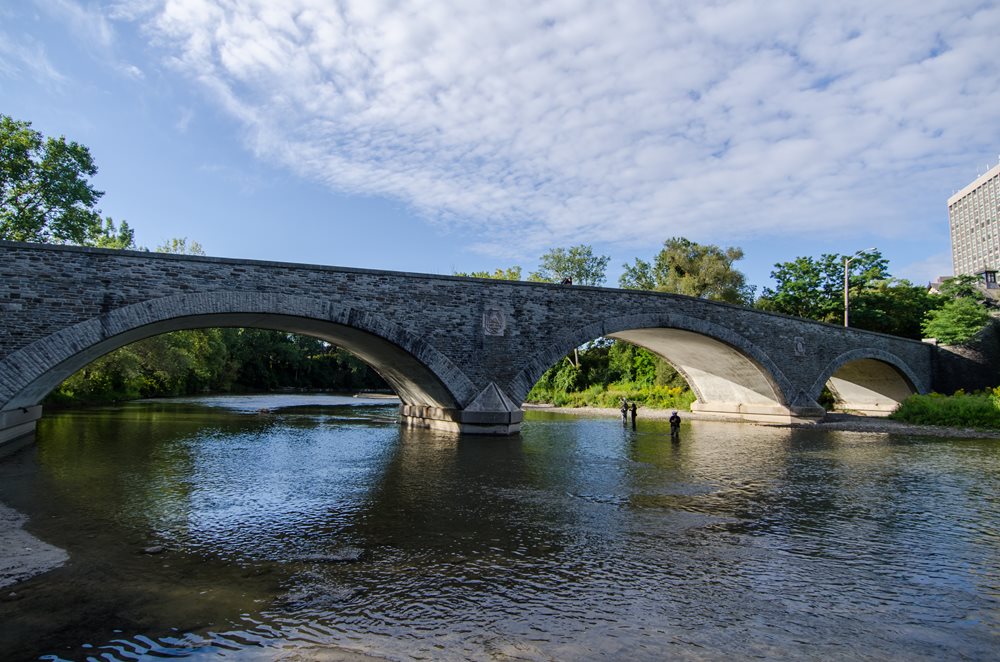
Old Mill Road Bridge, by Jeff Hitchcock licensed under CC BY 4.0
Location: Étienne Brûlé Park and Rowntree Mills Park, both in Etobicoke
About the Artist: Balance Bringers is an Indigenous Two-Spirit arts collective that tells Indigenous stories and history through the arts. The project was in collaboration with Naadmaagit Ki Group, Eventual Ashes, and Drawing with Knives Shadows.
About the Parks: Étienne Brûlé Park, named after a French colonizer, is a large beautiful space in Etobicoke running adjacent to the Humber River. The park is a short walk from a subway station, has a parking lot at one end and contains a recreational trail for pedestrians and cyclists. Features in the park includes a fire pit. The park is a unique space in Toronto for its salmon fishing and wildlife sightings.
Rowntree Mills Park, located along the banks of the Humber River, is a beautiful natural oasis in north west Toronto. It was named Rowntree Mills Park in 1969 after Joseph Rowntree, a pioneer who settled in north Etobicoke village of Thistletown and established two mills on the banks of the Humber River. The park is connected to the Humber River recreational trail and features a fieldhouse, washrooms, picnic sites and access to parking.
How the Park was Animated: In 2017, Balance Bringers presented Gaabimosemin Nibii Cobechenonk (translation: We will all walk with the water along the Humber River) in Rowntree Mills Park and Étienne Brûlé Park. An immersive arts experience, Cobechenonk included a magical canoe trip along the Humber River as well as music, shadow puppetry and storytelling grounded in the water teaching of two-spirit elders.
The Humber River has been and continues to be important for numerous Indigenous nations – Anishinaabe, Onkwehonwe (Haudenosaunee), Mississaugas and Wendat – and has played an important part in the history of Turtle Island. Participants were able to collectively experience the history of the land and learn its importance to Indigenous nations of Toronto. Traditional Indigenous food, made by the Anishinaabe Wellness Collective in Toronto, was served to attendees. Around a fire and with stories and food, Cobechenonk invited attendees to think about our collective futures and consider how Indigenous and non-Indigenous relations can be improved, as well as our relationship with the land we occupy and the water. This Indigenous-led arts presentation demonstrated how the arts can be used as a method of reconciliation and can create opportunities to, at least temporarily, reclaim urban space.
This project was funded by the City of Toronto through Toronto Arts Council’s Animating Toronto Parks grants program.